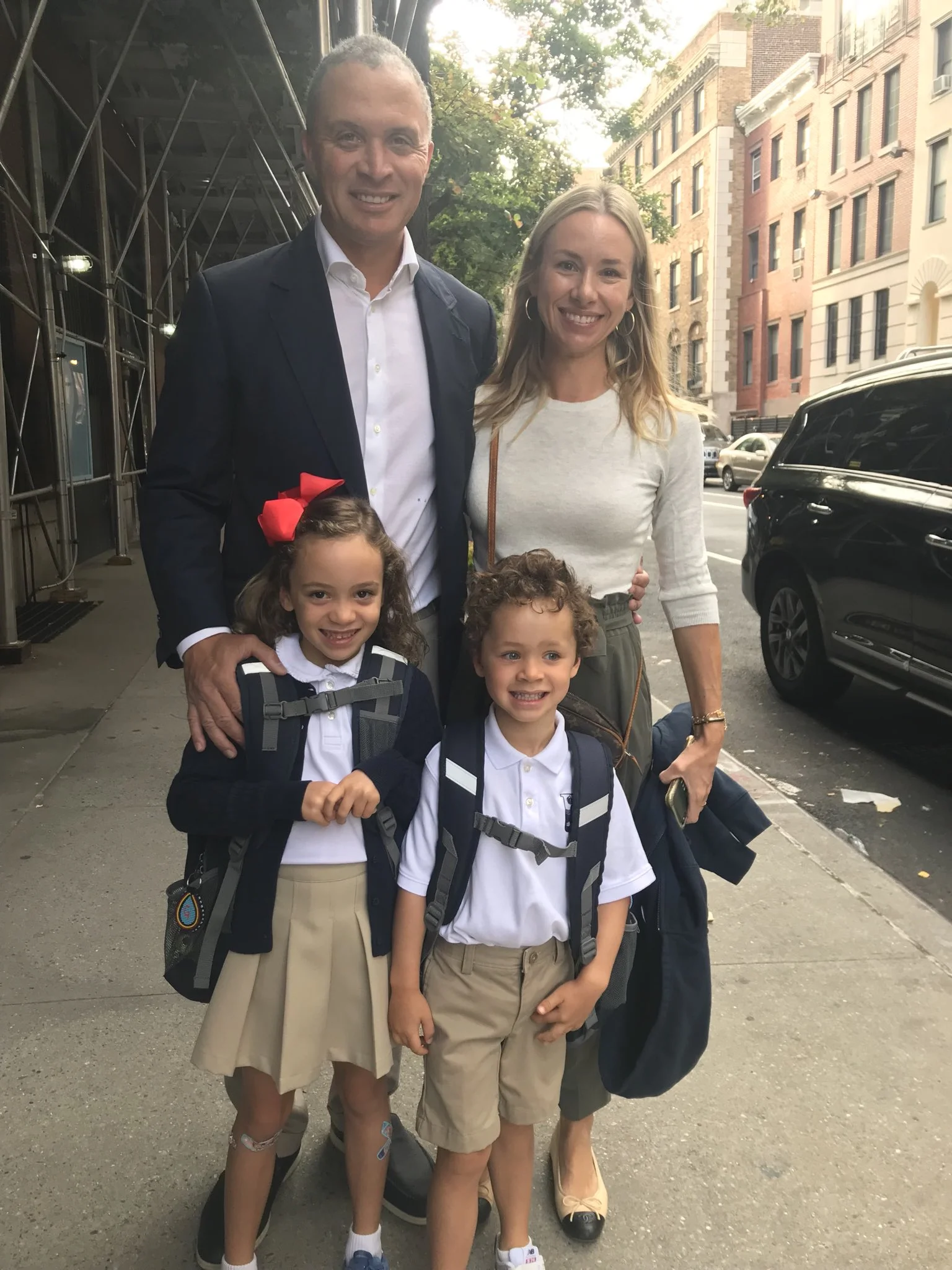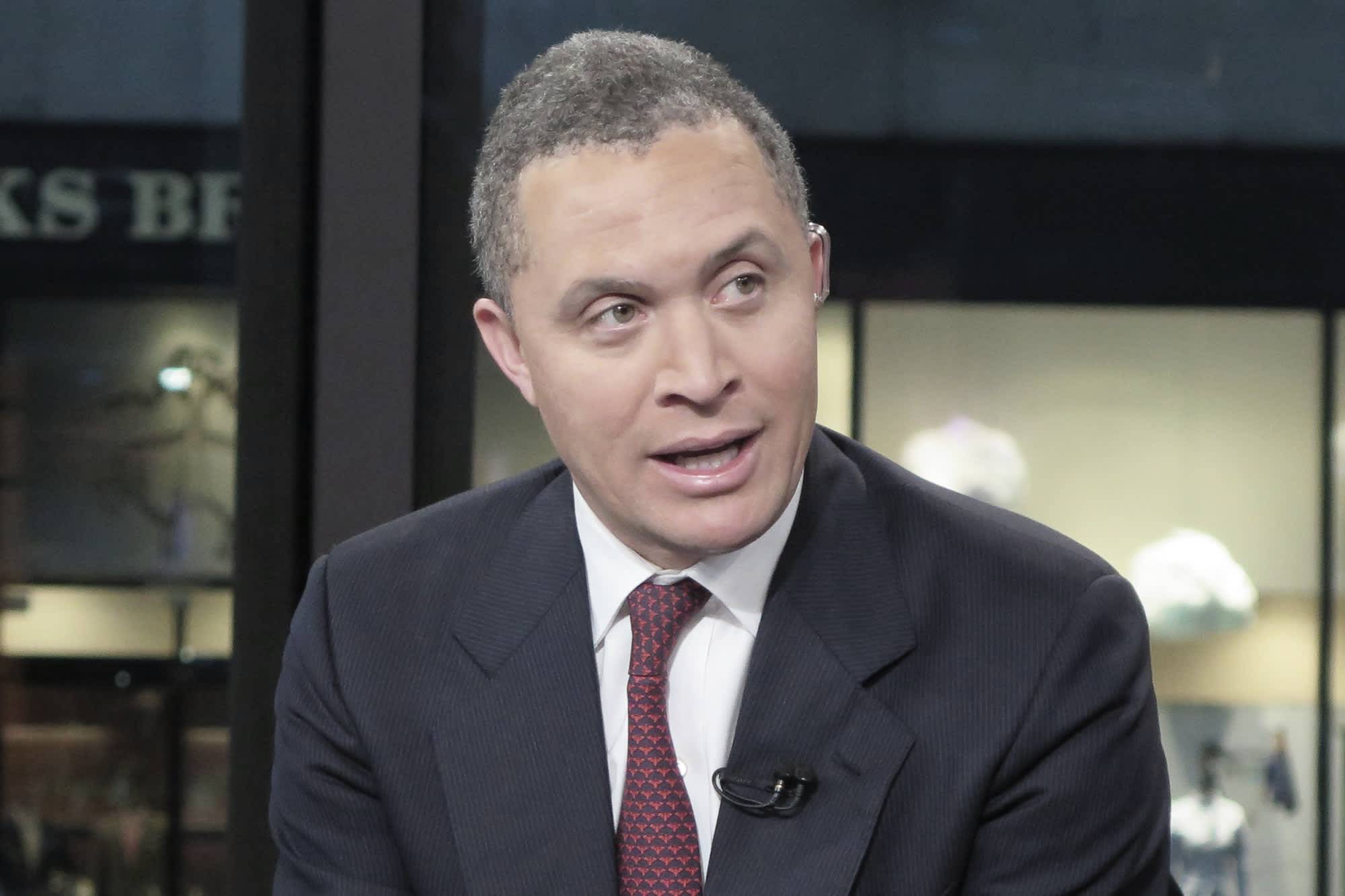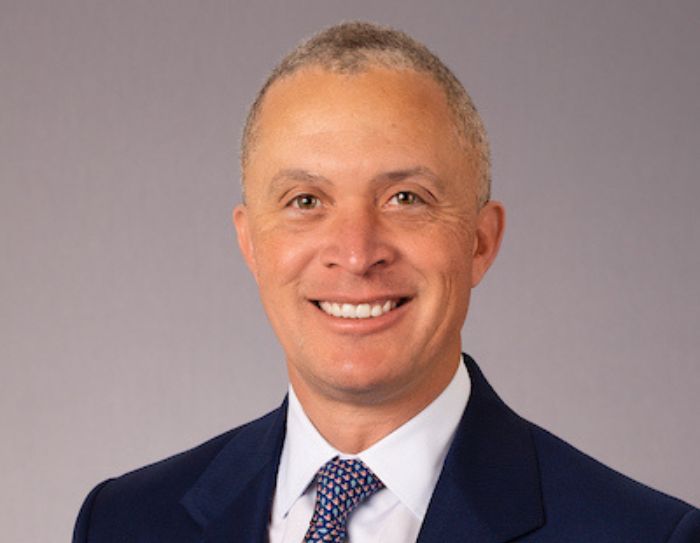Harold Ford Jr. - A Look At His Public And Private Service
When we think about figures who have truly made their mark in both the halls of government and the world of finance, Harold Ford Jr. often comes to mind. He is, in a way, someone whose path has been quite interesting, moving from serving people in Congress to working within the financial sector. His story, you see, offers a glimpse into a career that has spanned several important areas, leaving a mark on each one.
Born into a family already familiar with public service, Harold Ford Jr. stepped onto the national stage at a relatively young age. He spent a good number of years representing the people of Tennessee, playing a part in important discussions and decisions that shaped our country. It's almost as if he was always meant to be involved in matters of public importance, following a family tradition of sorts, yet forging his own unique path along the way.
But his journey didn't stop there; it actually took a rather significant turn. After his time in Congress, he transitioned into the financial world, bringing his insights and experience to a completely different kind of work. This shift, to be honest, highlights a person who is not afraid to take on new challenges and contribute in varied capacities, showing a versatility that is quite notable.
- Anahi En Quien Es La Mascara
- Total Wine More Vancouver Wa
- Kathy Lee Gifford Pictures
- Wrapping A Wine Bottle
- Anyalacey Onlyfans
Table of Contents
- A Life of Public Service and Beyond
- How Did Harold Ford Jr. Get Started in Washington?
- What Was Harold Ford Jr.'s Role in Congress?
- Stepping Into the Financial World
- Why Was Harold Ford Ford Jr.'s Time at Morgan Stanley Notable?
- Current Engagements and Public Voice
- What Does Harold Ford Jr. Do Now?
- A Public Figure's Journey
A Life of Public Service and Beyond
Harold Eugene Ford Jr. came into the world on May 11, 1970, in Memphis, Tennessee. His beginnings were rooted in a place with a rich history, and his family, it seems, had a deep connection to public life. He is, as a matter of fact, the son of Harold Ford Sr., who also served as a congressman. This family background, you know, likely shaped his early outlook and perhaps even his aspirations for a career dedicated to helping others and making a difference in the community he grew up in.
His story really begins to take shape with his entry into politics. From a relatively young age, he showed a knack for public service, following in the footsteps of his father but also carving out his own path. He has, in a way, been a consistent presence in the public eye, first as a representative for his home state and then in other important roles that have kept him involved in national discussions. It's pretty clear that his journey has been one of continuous engagement, always looking for ways to contribute.
Beyond his time as a lawmaker, Harold Ford Jr. has taken on various other responsibilities. He's been involved in the financial sector, offering his perspective and experience to a different kind of work. Additionally, he has become a voice in public discourse, sharing his thoughts as a commentator and also educating others as a lecturer. So, his career, you could say, has been quite varied, touching upon different aspects of public and private life, which is actually quite interesting to consider.
Personal Details - Harold Ford Jr.
| Born | May 11, 1970 |
| Birthplace | Memphis, Tennessee |
| Father | Harold Ford Sr. (former Congressman) |
| Former Role | U.S. Congressman (1997-2007) |
| Political Party | Democrat |
| Congressional District | Tennessee's 9th Congressional District |
| Current Roles | Financial Managing Director, Pundit, Author, Political Analyst, Lecturer |
How Did Harold Ford Jr. Get Started in Washington?
Harold Ford Jr. made his way to Washington, D.C., in 1997, after being chosen by the people of Tennessee. He was elected as the U.S. Representative for Tennessee’s 9th district, which was, quite frankly, a significant achievement, especially considering his age at the time. He was just 26 years old when he took on this important role, which is, you know, a relatively young age to be serving in the national legislature. This early start really set the stage for his time in public service, allowing him to begin his work at a point when many are still figuring out their career paths.
His entry into Congress wasn't just about getting elected; it was about taking on the responsibilities that come with the job. He was, in some respects, ready to jump into the legislative process, bringing his perspective to the discussions that happen every day on Capitol Hill. The fact that he was so young upon entering Congress, you see, might have given him a fresh outlook, perhaps even a different way of approaching the issues that faced his constituents and the country as a whole. It's actually quite inspiring to think about someone starting such a demanding career so early.
Representing Tennessee's 9th congressional district as a Democrat, Harold Ford Jr. began a period of service that lasted for a decade. This particular district, it's worth noting, had a history of being represented by his family, creating a sense of continuity. His election in 1996 marked the beginning of his active participation in the legislative body, where he would spend a good portion of his adult life working on behalf of the people who sent him there. So, his journey to Washington was, in a way, a blend of personal aspiration and a family legacy, which is pretty compelling.
What Was Harold Ford Jr.'s Role in Congress?
During his time serving in Congress, Harold Ford Jr. took on a number of important responsibilities, working on various committees that dealt with significant areas of public policy. He was, for example, a member of the House Financial Services Committee, which handles matters related to banking, housing, and the economy. This role, you know, would have given him a direct hand in shaping financial regulations and policies that affect everyone, which is quite a big deal. He also served on the Budget Committee, a group that focuses on the nation's spending plans, and the Education Committee, which deals with schools and learning. These assignments, you could say, show a broad interest in different aspects of governance.
Beyond his committee work, Harold Ford Jr. was also a part of specific groups within Congress. He was a member and a leader of the Blue Dog Democrats, a group known for its more fiscally conservative stance within the Democratic Party. This affiliation, actually, suggests a pragmatic approach to policy-making, often looking for common ground and responsible spending. His involvement with this group, in a way, highlights his position as someone who might have sought to bridge divides and find practical solutions, which is often a valuable quality in politics.
Furthermore, Harold Ford Jr. was a past chairman of the Democratic Leadership Council, or DLC. This organization, you see, was focused on promoting centrist policies within the Democratic Party, aiming to broaden its appeal. His leadership role here indicates a desire to influence the party's direction and its approach to national issues. So, his time in Congress was not just about voting on bills; it was also about shaping the internal dynamics of his party and, in turn, the broader political conversation. It's pretty clear he was quite active in many different ways.
Stepping Into the Financial World
After a decade of service in Congress, Harold Ford Jr. made a significant change in his professional life, moving from the public sector to the private financial world. He joined Morgan Stanley in March 2011, taking on a role that was quite different from his previous work as a lawmaker. He became a managing director and a senior client relationship manager, which, in a way, meant he was responsible for building and maintaining connections with important clients across different parts of the company. This shift, you know, demonstrated his ability to adapt his skills to a new environment, one focused on investments and wealth management.
His responsibilities at Morgan Stanley were spread across various divisions, including institutional securities, wealth management, and investment management. This suggests a role that required a broad understanding of the financial industry and the ability to work with a diverse range of clients and colleagues. It's almost as if his experience in Congress, where he dealt with many different issues and people, prepared him for the varied demands of this new position. He was, basically, bringing his knowledge and his ability to connect with people to a completely different kind of challenge, which is quite a transition.
This move into the financial sector marked a new chapter for Harold Ford Jr., one that allowed him to apply his insights in a different capacity. His background in public policy, particularly his work on financial services committees in Congress, likely gave him a unique perspective on the workings of the economy and markets. So, his entry into Morgan Stanley was, in some respects, a natural progression for someone with his background, even though it was a departure from his previous career. It really shows how skills can be transferable across different fields, which is, you know, a valuable lesson for anyone.
Why Was Harold Ford Jr.'s Time at Morgan Stanley Notable?
Harold Ford Jr.'s time at Morgan Stanley, while a significant career move, also drew attention for a specific reason regarding his departure. Morgan Stanley clarified that he was fired for violating company policies. This detail, you see, is important because the company made it clear that the reason for his leaving was related to internal rules, not to any sexual harassment allegation. It's actually quite crucial to understand this distinction, as it addresses a particular aspect of his time there, ensuring clarity about the circumstances of his departure.
The company's statement was, in a way, a direct response to public speculation, aiming to provide a precise reason for the end of his employment. It highlighted that the issues involved were about adhering to the company's own guidelines and regulations. This kind of situation, you know, can often lead to various rumors, so the firm's clear communication was, in some respects, a way to manage the narrative and present the facts as they understood them. It shows that even prominent figures are subject to the policies of the organizations they work for, which is a fairly standard expectation in any professional setting.
So, while his joining Morgan Stanley was a notable step into the financial world, his departure also became a point of public discussion, specifically because of the need to clarify the reasons behind it. The emphasis on "violating company policies" and the explicit denial of "a sexual harassment allegation" were key parts of the company's communication. This aspect of Harold Ford Jr.'s career, therefore, became a public record of a professional parting of ways, with the company providing its official explanation for the event. It's just a part of his overall career story, you know, and helps to complete the picture.
Current Engagements and Public Voice
Today, Harold Ford Jr. remains a public figure, engaging in several roles that keep him connected to both the financial world and the broader political conversation. He is, for instance, an American financial managing director, which means he continues to work within the financial sector, likely bringing his experience to various firms or projects. This continued involvement in finance shows a consistent interest in the economy and markets, a field he has been connected to since his time in Congress and at Morgan Stanley. It's almost as if he's found a way to blend his legislative background with the demands of the private sector, which is pretty interesting.
Beyond his financial work, Harold Ford Jr. has also established himself as a pundit and author. As a pundit, he offers his opinions and analysis on current events, particularly those related to politics and the economy, to a wider audience. This role, you know, allows him to share his insights and contribute to public discourse, drawing on his years of experience in Washington. Writing as an author also gives him a platform to express his ideas in a more structured and lasting way, perhaps even reflecting on his own journey and the lessons he has learned. So, he's definitely keeping his voice heard in different forums.
Furthermore, Harold Ford Jr. is currently a political analyst and a lecturer at Michigan’s School of Public Policy. These positions, in a way, allow him to share his practical knowledge and experiences with students and the general public, offering a real-world perspective on how government and policy work. Being a lecturer means he can shape the minds of future leaders, while his role as a political analyst keeps him at the forefront of national discussions. It’s pretty clear that he enjoys being involved in the exchange of ideas, and these roles give him ample opportunity to do just that, which is, you know, quite a valuable contribution.
What Does Harold Ford Jr. Do Now?
As we look at Harold Ford Jr.'s current activities, it's clear he has a diverse set of responsibilities that keep him quite busy. He continues his work as a financial managing director, which means he's still deeply involved in the world of investments and financial strategy. This particular aspect of his career, you see, showcases his continued expertise in economic matters, something he was also involved with during his time on the House Financial Services Committee. It's a blend of his past legislative work with his present private sector engagements, creating a rather unique professional profile.
In addition to his financial endeavors, Harold Ford Jr. spends a good amount of time as a political analyst. This involves offering his perspectives on political events, policies, and trends through various media outlets. He is, basically, someone who can break down complex political situations for a general audience, drawing on his firsthand experience as a former congressman. This role, you know, keeps him connected to the political discussions that shape our country, allowing him to contribute his informed opinions and observations, which is quite valuable for public understanding.
Moreover, Harold Ford Jr. is also an author, which means he shares his thoughts and experiences through written works. This allows him to delve deeper into topics that interest him, perhaps even offering a more personal reflection on his career and the issues he cares about. And, of course, his role as a lecturer at Michigan’s School of Public Policy means he is actively involved in educating the next generation, sharing insights from his time in public service and finance. So, it's pretty evident that he's maintaining a very active presence in both the business and public spheres, offering his insights in multiple ways, which is, in some respects, quite impressive.
A Public Figure's Journey
Harold Ford Jr.'s journey, from being born in Memphis, Tennessee, to becoming a notable figure in both American politics and finance, is quite a story of varied contributions. He started his public life following in the footsteps of his father, representing his home district in Congress for many years. This period of service, you know, was marked by his work on important committees and his involvement in shaping the direction of his political party. He was, in a way, a young and active voice in Washington, making his presence felt on key issues of the day, which is actually quite a significant accomplishment for someone starting out.
His transition from Congress to the private sector, particularly his roles in finance and as a commentator, shows a willingness to embrace new challenges and apply his skills in different environments. He has, basically, shown a capacity to adapt and continue contributing to public discourse and the business world. The fact that he has maintained a presence as a pundit and lecturer, even after his time in elected office, suggests a deep-seated interest in current affairs and a desire to share his knowledge with others. It's pretty clear that he enjoys being involved in the exchange of ideas, and his career reflects that.
Ultimately, Harold Ford Jr. stands as a person known for an impactful career that has spanned several important areas. From his years representing Tennessee in Congress to his subsequent success in the financial sector and his ongoing role as a public commentator, his path has been one of continuous engagement and influence. He is, you see, a figure who has consistently worked in areas that touch upon the lives of many, whether through legislation, financial markets, or public discussion. His story, in some respects, offers a look at a life dedicated to various forms of public and professional service, which is quite a testament to his drive and versatility.
- Anthropologie Walt Whitman
- Zobrist Design Group
- Bo Kanda Lita Baehre
- Images Marc Anthony
- Blue Dog Soda

Who Is Harold Ford Jr.'s Wife? All About Emily Threlkeld

Meet Harold Ford Jr: Biography, Age, Wiki, Family, Career, Net Worth

Harold Ford Jr. Bio - Detroit Regional Chamber